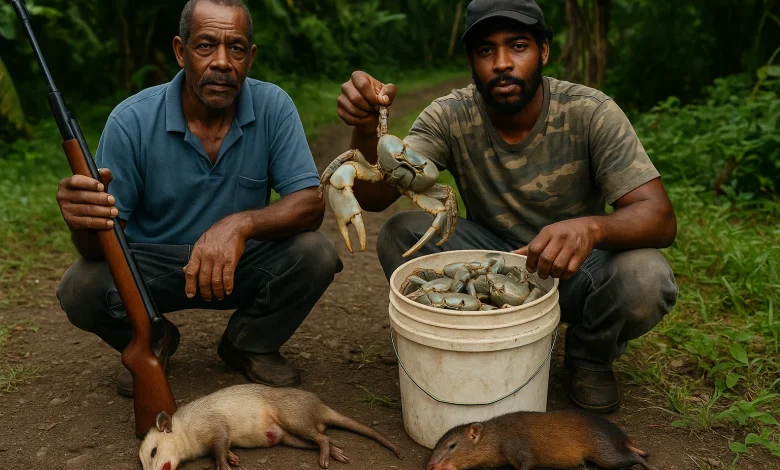Hunting Season in Dominica

Hunting Season in Dominica operates under a framework of legislation, ministerial regulations, and annual notices, rather than being fixed in perpetuity. The Forestry and Wildlife Act, Chapter 60:02 provides the legal foundation for open seasons, closed seasons, prohibited species, licences, and penalties. Hunting is allowed only when the government issues a formal open-season notice, which specifies dates, species allowed, and export or sale permissions.
Legal Basis and Regulatory Rules
The Forestry and Wildlife Act empowers the Minister to set open or closed seasons and methods of taking wildlife via notices published in the Gazette. The Act includes multiple safeguards:
- A person may not hunt during a closed season or in a closed area.
- Hunting in wildlife reserves, national parks, or monuments is illegal.
- Use of prohibited devices, firearms capable of multiple discharges, explosives, poisons, or trapping devices is forbidden.
- Hunting birds at night is prohibited.
- Licences are required, must be carried, are valid only to the person issued, and cannot be transferred.
- Children may hunt only when accompanied by an adult licence holder.
- The Act also allows the Minister to amend the schedules of species or methods by notice.
Because open seasons are declared annually, the specifics (start, end, export window, species list) vary by year, depending on ecological assessments and conservation goals.
Practice of Open Seasons
In years recent to today, the Forestry Division regularly lifts the hunting ban in the latter part of the calendar year for a limited period. Notices often extend a licence period, permit limited export, and specify legal species. For example, in 2024 the ban was lifted from 27 September to 31 December, with export permitted until 31 January. Earlier legal practice shows that in 2015 a Hunting and Fishing Open Season Notice SRO No. 27 of 2015 defined the open season for crabs, agouti, and manicou under section 45 of the Forestry and Wildlife Act.
Announcements also emphasize that the public should always check the current year’s notice before going out, since dates, species, and rules can shift in response to rainfall, habitat conditions, or conservation status.
During declared open seasons, the species most commonly allowed are agouti, manicou (opossum), and land crabs (family Gecarcinidae) in designated areas and under permitted methods. Other species remain protected, and broader take is prohibited. Every year includes the exact same species list, and each legally declared season clarifies what may or may not be hunted.
Protected Species, Prohibitions, and Conservation
Dominica has strict exceptions: endemic parrots, the Imperial Amazon (Sisserou Parrot) and Red-necked Amazon (Jaco Parrot), are specially protected and are never allowed for hunting. Other protected fauna include certain birds, reptiles (e.g., native iguanas), amphibians (e.g., the mountain chicken frog), and crustaceans under special schedules. Hunting or removing wildlife from freshwater streams without permission is prohibited at all times.
Violation of closed season or entering closed areas is punishable under the Act. The Forestry Division has authority to seize equipment or wildlife and prosecute offenders. The law also prohibits using illegal devices, shooting from vehicles, having loaded firearms under the influence, or careless discharge that endangers lives or property.
In Dominica’s second national report under the Convention on Biological Diversity, it is stated that at times a complete ban on hunting is imposed to allow wildlife populations to recover or to carry out surveys.
Enforcement and Penalties
Penalties under the Act are significant. Hunting without a licence or during a closed season can result in fines of XCD $2,500, while illegal sale or export of wildlife outside the permitted period can bring fines up to XCD $5,000. Repeat offences or use of prohibited methods may carry higher penalties, including imprisonment. Export of wildlife requires an official permit, and even when permitted, only during the short window following the open season.
General Timeline and Management
Although the season is subject to change, a typical annual pattern is as follows:
- September – Open season declared, licences issued by Forestry Division.
- Late December – Hunting season ends, no further harvest permitted.
- January (following year) – Export window closes, after which all hunting and trade are banned.
- Remainder of the year – Closed season in effect, with full protection of all species.
The variability in timing and scope underscores the importance of consulting the official notice each year before engaging in hunting activities.
Common Rules Under the Act
- No hunting outside declared open seasons or within closed areas.
- Licences required and non-transferable.
- Prohibited devices (explosives, poisons, traps) always banned.
- Night hunting, shooting from vehicles, or careless discharge forbidden.
- Children may only hunt under supervision by adult licence holder.
- Export or sale always requires export permit if permitted.
- Hunting or fishing in freshwater streams without license is illegal.
Factors That Cause Variation by Year
- Rainfall and habitat conditions affecting game population.
- Ecological surveys and wildlife counts indicating need for rest years or limits.
- Conservation goals for sensitive species (parrot recovery, frog protection).
- Policy changes or amendments via Ministerial notice under the Act.
- Public consultation or community input affecting permitted species list.
The Hunting season in Dominica is a dynamic, legally regulated practice tied tightly to conservation needs, ecological monitoring, and legislative authority. No two seasons are guaranteed identical. Anyone interested in hunting must consult the Forestry & Wildlife Act (Chapter 60:02) and the latest ministerial gazette notice before participating.




